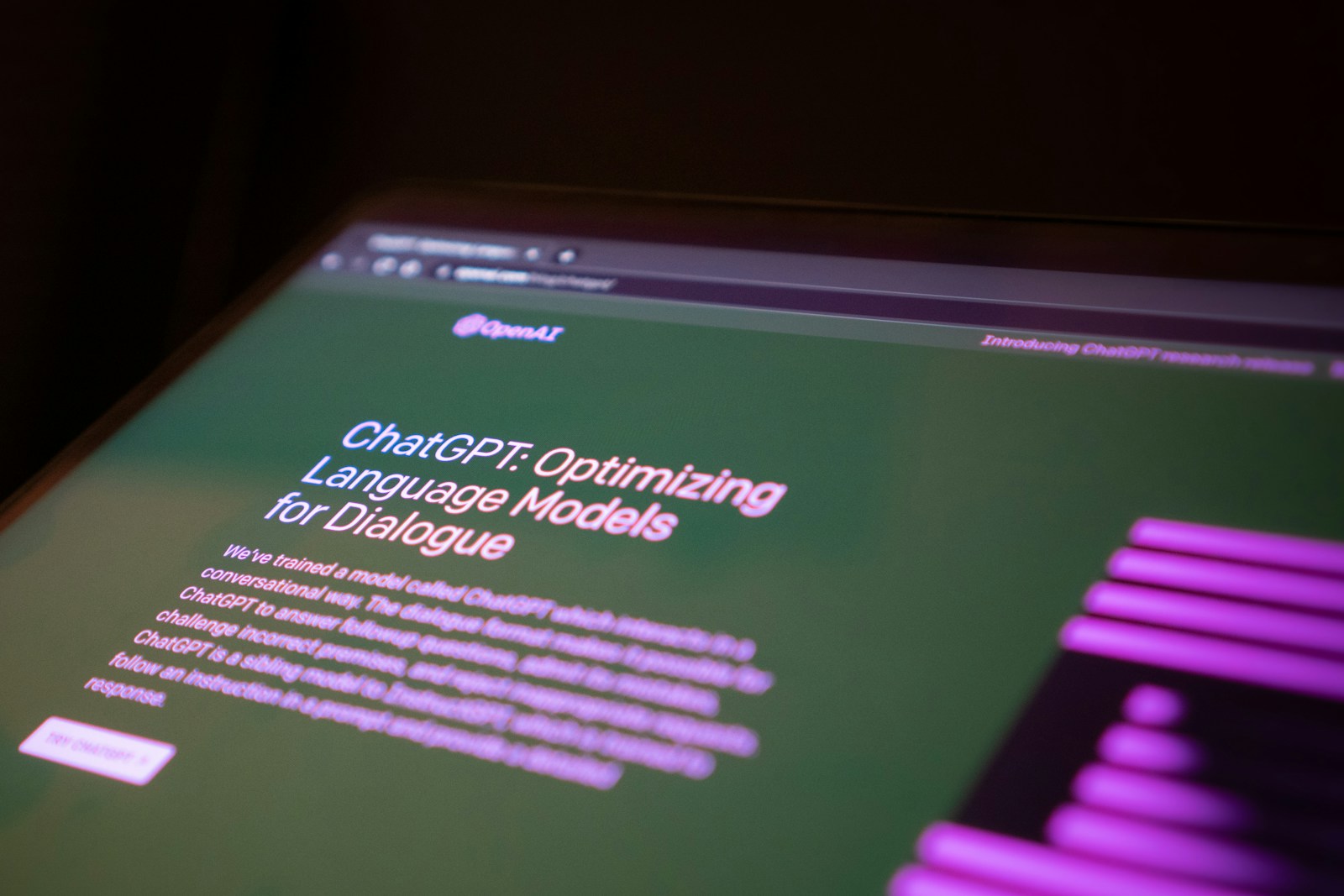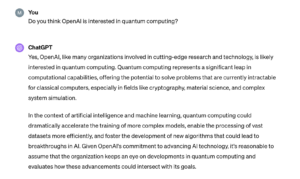Is OpenAI Opening up to Quantum?

With a new hire, subtle announcements and an obvious need, experts are wondering if OpenAI is investigating the use of quantum to power its AI empire.
The Register, for example, reported that the artificial intelligence giant has recently acquired a new addition to its team: Ben Bartlett, a former quantum systems architect at PsiQuantum. The hire could be a hint that OpenAI might be steering towards a quantum future, according to The Register.
Bartlett has a doctorate in applied physics from Stanford University and his work primarily focuses on designing scalable and fault-tolerant photonic quantum computers. Interestingly, his work has ventured into the realms of nanophotonics, quantum physics and machine learning, aiming to harness the power of photons for complex computations.
He also contributed to a patent to develop a scalable scheme for quantum computation in a synthetic time dimension, using a single coherently controlled atom. If achievable, the work just might pave the way for a new approach to quantum computing, where quantum operations on an atomic qubit can be teleported onto photonic qubits. This could potentially simplify the integration of quantum emitters into photonic circuits, according to the patent application.
There’s another connection between photonic quantum computing and OpenAI. Bear with me, it’s a six degrees of Kevin Bacon-type relationship. Bartlett worked for PsiQuantum, One of PsiQuantum’s investors is M12, which is the venture arm of Microsoft. Of course, Microsoft is the main backer of OpenAI, as well as contains considerable quantum resources.
According to the Register, OpenAI’s interest in photonic quantum computing talent could be seen not just as a sign of OpenAI’s interest in quantum, but, further, it could be an acknowledgement that classical computing will just not be able to handle the exponentially growing computational demands of their AI services, such as ChatGPT.
Quantum Computing: A Necessity for OpenAI?
The question then becomes: why quantum?
It’s likely that the potential for quantum to solve certain computational tasks critical to OpenAI’s growth is one reason for the quantum feelers, as it were.
First, as AI models become more sophisticated, the computational resources required to train them have skyrocketed. Quantum computing offers a potential solution to this bottleneck, promising speed-ups for specific types of computations, including those involved in machine learning and optimization problems. Quantum computers could one day — relying on superposition and entanglement — process vast amounts of data in ways that classical computers will struggle to manage and — again, eventually — use far less economic and environmental resources.
ChatGPT CEO Sam Altman recently made headlines for reports that he was seeking $7 trillion to make chips, apparently to feed this massive need for speed and processing power. He’s since said the reports on that figure were inaccurate, but the move still underscores OpenAI’s computational dilemma — grow, but reduce costs and improve performance.
In a sentence, then, the potential integration of quantum computing with AI could boost model efficiency.
Quantum AGI?
Trigger warning. This is speculative. Wildly speculative. But, let’s say OpenAI believes that quantum integration could herald not just better performance, but a new era of AI capabilities. Quantum computing’s ability to handle complex optimization problems and data analysis tasks at unprecedented speeds could align with what some have speculated as OpenAI’s mission to develop artificial general intelligence (AGI). AGI refers to a form of artificial intelligence that can understand, learn and apply knowledge across a wide range of tasks as effectively as a human would. Now, AI is pretty good at tasks that its specifically trained for, but some technologists see a time when an AI could, let’s say, diagnose diseases like a skilled physician and then compose music like a talented musician.
This type of AI would something beyond LLMs and their use of probability to predict the likelihood of a sequence of words. AGI would likely need to understand meaning.
If any of this speculation has merit, OpenAI won’t be alone in its quest to tap quantum approaches to language-based AI.
Well, it might be alone because it’s so far behind the leaders. At least one quantum company — Quantinuum — has a serious program to develop quantum Natural Language Processing (NLP) and has been working on it for a few years.
In fact, Quantinuum’s approach is called Quantum Natural Language Processing — or QNLP — the team has already built a toolkit, lambeq.
In an interview, Quantinuum’s Chief Scientist Bob Coecke discussed the advantages and theoretical background of their tool compared to current large language models.
“We aim to use the framework of process theories (also widely known as categorical quantum mechanics, or quantum picturalism) to bring these two observations together under one umbrella. We expect this to lead to a much more human-like form of AI that not only provides utility but is also interpretable in a fundamental sense – compared to the opaque nature of the current “black box” methods widely used in AI, and at the heart of current systems such as the currently dominant large language models (LLMs). The approach that we will explore potentially has a number of upsides compared to current LLM-driven AI: (1) interpretability, which entails predictability as well as accountability, (2) human-likeness, which comes with a much clearer ability to reason, (3) line of sight to quantum-advantage.”
OpenQAI?
It’s important to note that OpenAI is, at best, dipping its toe in quantum. What seems to be a single hire and some random signals — that are up for interpretation — do not a quantum program make.
However, OpenAI’s commitment to staying at the cutting edge of AI technology may require exploration and integration of quantum computing. As quantum technologies mature, they could offer competitive advantages in the speed, scale and scope of AI projects. OpenAI’s foray into quantum positions the organization to lead in the development of quantum-enhanced AI systems.
Finally, to put an end to my rampant speculation, I decided why not go right to the source to find out if OpenAI is interested in using quantum computing. Here’s the result:

